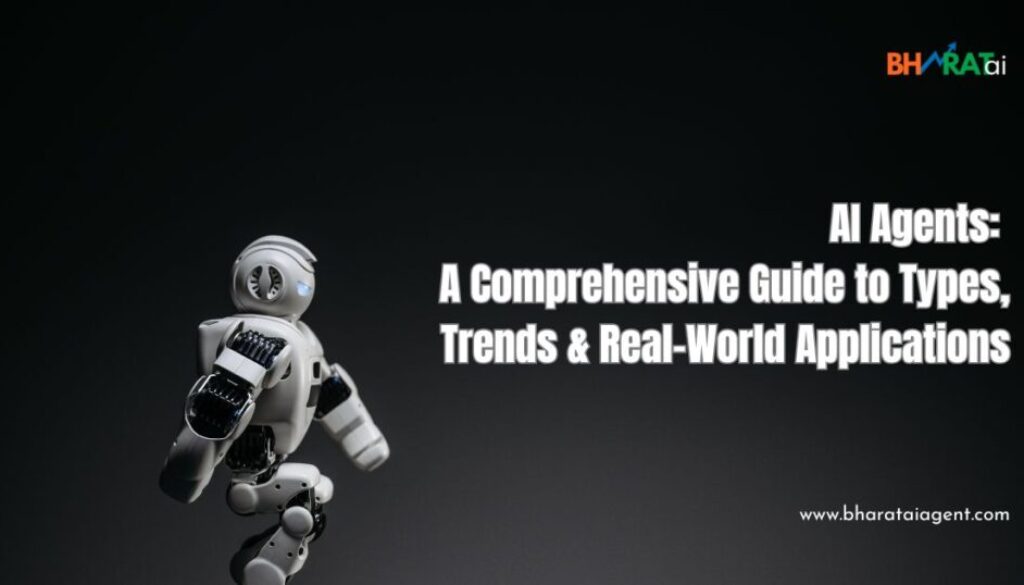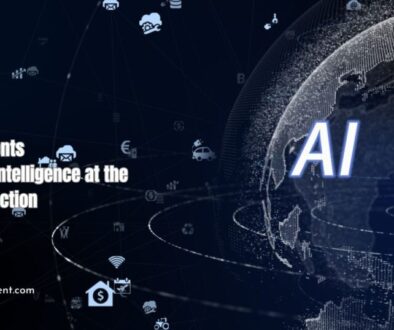AI Agents in 2025: A Comprehensive Guide to Types, Trends & Real-World Applications
Introduction
AI Agents have become indispensable digital assistants, reshaping how businesses and individuals interact with technology. From automating complex workflows and customer service tasks to personalizing user experiences, AI Agents operate autonomously to achieve specific goals, greatly enhancing productivity and efficiency.
In this comprehensive guide, designed to align with Google’s latest Search Generative Experience (SGE) and optimized for conversational queries, you’ll discover:
-
What exactly AI Agents are in 2025
-
Different types and key functionalities of AI Agents
-
Latest innovations and developments as of March 2025
-
Real-world applications across industries
-
Benefits and challenges of using AI Agents
-
Future predictions and emerging trends
-
Clear, direct answers to common FAQs
What are AI Agents?
AI Agents are intelligent software systems designed to autonomously perform tasks, interact with users, and make decisions without continuous human oversight. Utilizing advanced AI technologies—such as natural language processing (NLP), machine learning (ML), generative AI, and reinforcement learning—AI Agents can handle diverse tasks ranging from scheduling appointments and answering customer queries to managing complex sales and marketing automation workflows.
Types & Key Functionalities of AI Agents
AI Agents typically fall into several specialized categories:
✅ Conversational AI Agents
-
Provide real-time support via chatbots or voice assistants.
-
Examples: Virtual assistants (Alexa, Siri), customer service bots (GPT-4 Turbo-based chatbots).
✅ Personal AI Agents
-
Tailored assistants managing scheduling, emails, productivity tasks, and personalized recommendations.
-
Examples: Personal productivity assistants integrated with WhatsApp or Telegram.
✅ Generative AI Agents
-
Autonomously create original content, images, or videos.
-
Examples: GPT-4 Turbo and Gemini 1.5-driven content creators, Midjourney Video agents.
✅ Sales & Marketing AI Agents
-
Automate lead generation, personalized outreach, and customer engagement.
-
Examples: LinkedIn outreach automation, email personalization bots.
✅ Operational & Workflow AI Agents
-
Manage and optimize business workflows and processes autonomously.
-
Examples: Supply-chain management agents, automated CRM systems.
Latest Innovations & Developments in AI Agents (2025)
Recent breakthroughs shaping the AI Agents landscape include:
-
Multimodal AI Agents: Agents capable of processing text, images, videos, and audio simultaneously to offer richer user interactions and context-awareness.
-
Emotionally Intelligent Agents: Advanced AI systems capable of detecting and responding to human emotions, widely used in customer support and mental health services.
-
Autonomous Workflow Automation: Increasingly sophisticated agents autonomously managing end-to-end business processes, from lead qualification to transaction completion.
-
Edge AI Agents: Compact, privacy-centric AI Agents operating directly on smartphones, IoT devices, and wearables, enhancing real-time responsiveness.
-
Agentic AI Automation: AI systems autonomously researching, summarizing, and synthesizing information across multiple digital platforms (YouTube, LinkedIn, blogs, Reddit).
Real-World Applications of AI Agents in 2025
AI Agents significantly impact multiple industries today:
✅ Customer Service & Support
-
AI-powered chatbots and voice assistants delivering instant, 24/7 customer service.
✅ Healthcare & Medical Support
-
Virtual healthcare assistants for appointment scheduling, patient communication, and triage.
✅ Sales & Marketing Automation
-
AI-driven personalized outreach, lead nurturing, and automated follow-ups.
✅ Education & E-learning
-
Intelligent virtual tutors providing personalized educational experiences and automated assessments.
✅ Financial Services
-
Autonomous agents handling transactions, fraud detection, personalized financial advisory, and investment automation.
Benefits of AI Agents
AI Agents provide clear benefits to businesses and individuals:
-
Increased Efficiency: Automate routine tasks, significantly reducing manual workload.
-
Improved Productivity: Free up time for strategic, creative, and higher-value tasks.
-
Cost Savings: Reduce operational expenses through intelligent automation.
-
Enhanced Customer Experiences: Provide personalized, immediate, and contextually relevant responses.
-
Data-driven Decisions: Make accurate decisions by analyzing extensive data in real-time.
Challenges & Ethical Concerns of AI Agents
Despite their benefits, AI Agents pose challenges such as:
-
Privacy & Security Risks: Responsible handling of personal and organizational data.
-
Bias & Fairness: Addressing algorithmic biases that could lead to unfair or discriminatory outcomes.
-
Transparency & Explainability: Ensuring clarity and accountability in AI decision-making.
-
Dependence on Quality Data: Necessity for high-quality, accurate datasets for optimal agent performance.
Future Predictions & Emerging Trends in AI Agents
Experts anticipate these trends shaping the future of AI Agents:
-
Massive Expansion of Multimodal Capabilities: AI Agents seamlessly integrating text, images, audio, and video to provide richer experiences.
-
AI Agents in the Metaverse: Intelligent agents facilitating immersive, interactive virtual experiences.
-
Quantum-enhanced AI Agents: Leveraging quantum computing to enhance decision-making speed and complexity.
-
Proactive AI Agents: Autonomous agents proactively anticipating user needs and actions.
FAQs: AI Agents
Q1: What exactly are AI Agents?
AI Agents are intelligent software systems that autonomously perform tasks, interact with humans, and make informed decisions using advanced AI algorithms.
Q2: How are AI Agents different from traditional AI?
Unlike traditional AI tools focused on singular tasks, AI Agents autonomously manage complex workflows, perform decision-making, and operate independently without constant human oversight.
Q3: What tasks can AI Agents perform effectively in 2025?
AI Agents handle tasks including customer support, email management, sales outreach, personalized marketing, scheduling, and workflow automation efficiently.
Q4: Are AI Agents affordable and accessible for small businesses?
Yes. By 2025, AI Agents are affordable, scalable, and user-friendly, making advanced automation accessible to businesses of all sizes.
Q5: What are common daily-life examples of AI Agents?
Examples include smart home assistants (Alexa, Google Assistant), customer support bots, email scheduling agents, and personalized content recommendation systems.
Conclusion
AI Agents have transformed digital experiences, workplace efficiency, and personal productivity. Understanding their capabilities, benefits, and ethical implications empowers businesses and individuals to harness AI’s full potential responsibly and effectively.
#AIAgents #AI2025 #AutomationAI #ConversationalAI #GenerativeAI #AITrends #FutureTech #AIInnovation #ProductivityAI #EdgeAI #AIinBusiness #AIChatbots
AI Agents 2025
Autonomous AI Agents
Conversational AI
Personal AI Assistants
AI Automation Tools
Generative AI Agents
AI Agents in Business
Emotionally Intelligent AI
AI Ethical Concerns
Future of AI Agents
What are AI Agents
AI Agents Examples
AI Automation in 2025
AI Agents vs Traditional AI
AI Personalization Examples
Multimodal AI Systems
AI Workflow Automation
Quantum Computing and AI Agents
AI Agents Benefits
AI Customer Service Agents




